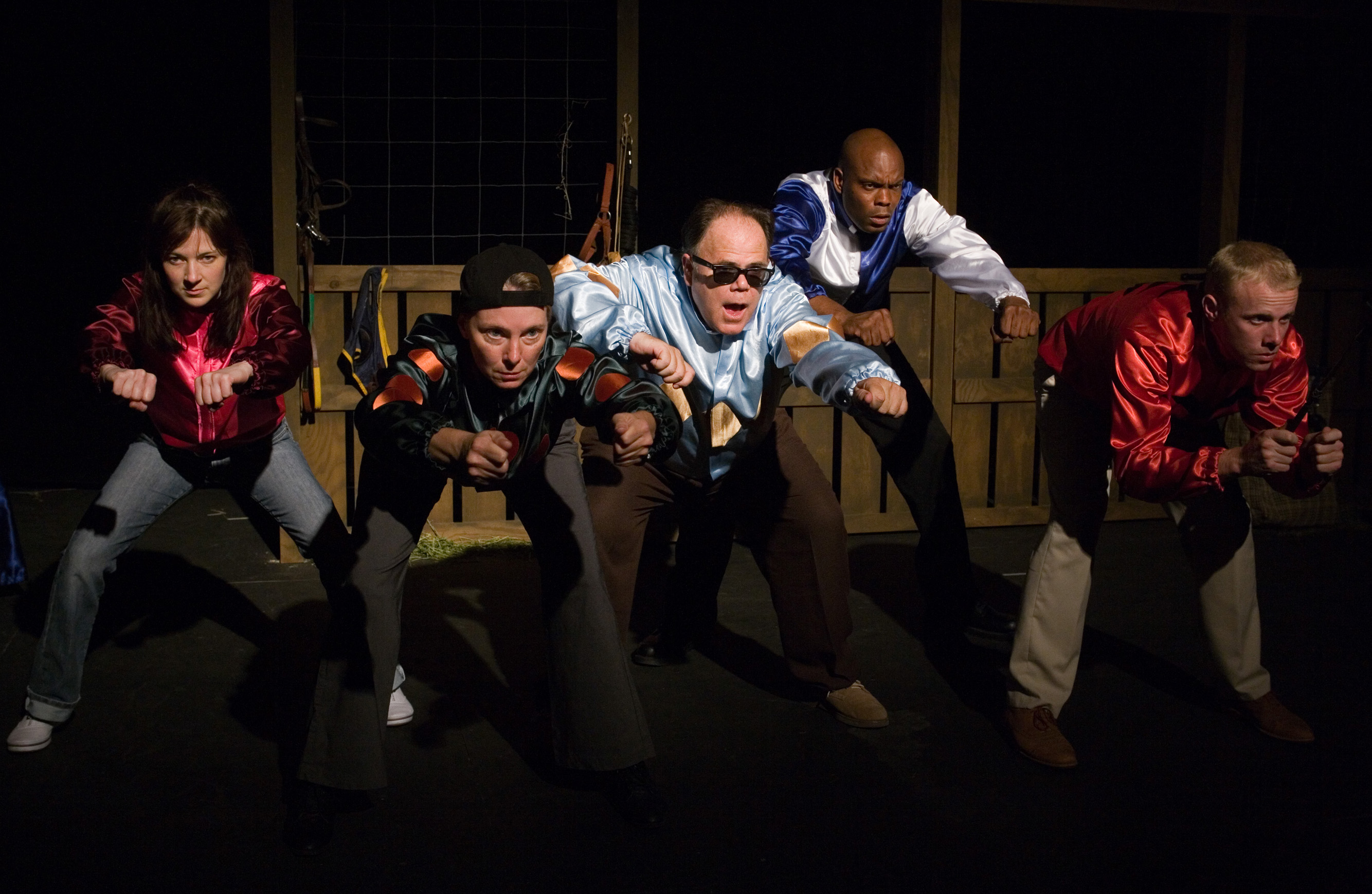|
San
Diego Jewish World
|
||||||||||||||
|
" We intend to contribute $40 million to the United Nations Relief and Works Agency," she said. "We will not leave one and a half million Palestinians at the mercy of terrorist organizations."Also, she said: "We had previously identified up to $86 million to support President Abbas's efforts to build responsible security forces. Now, in light of the new Palestinian Government, we will be working with Congress to restructure that assistance so that it can be used effectively. A transcript of Secretary Rice's comments is reproduced below.
U.N. Secretary General deplores rocket attack on Northern Israel; calls
it effort to 'destabilize' Lebanon
UNITED NATIONS (Press Release)– Secretary-General Ban Ki-moon today strongly deplored the rocket attack launched from southern Lebanon at the northern Israeli town of Kiryat Shmona, calling it the most the serious violation of the Blue Line since the end of last year’s war in the region. In a statement released by his spokesperson, Ban described yesterday’s rocket attack – which media reports say damaged roads and vehicles but caused no casualties – as “an attempt to destabilize the situation in Lebanon.” The statement stressed the importance of respecting and fully implementing Security Council resolution 1701, which ended the 34-day conflict last year between the Israeli Defence Forces (IDF) and Hizbollah, and called on all parties to exercise maximum restraint. Ban said he
had been assured by the UN Interim Force in Lebanon (UNIFIL), as well as by
Lebanon’s armed forces, “that they will do their utmost to apprehend those
responsible for this violation and will continue their close cooperation to
prevent any further attacks.” UNITED NATIONS (Press Release)– The United Nations agency tasked with helping Palestinian refugees says its operations in the Gaza Strip have returned to their levels before the recent outbreak of deadly fighting, but a warehouse on the West Bank housing stocks of the UN World Food Programme (WFP) was ransacked at the weekend. The UN Relief and Works Agency for Palestine Refugees in the Near East (UNRWA) had temporarily suspended all but its emergency health and food programmes in Gaza last week after the killing of two of its workers. But its wider operations have resumed again and returned to pre-fighting levels, UN spokesperson Michele Montas told reporters in New York today. At a meeting of UNRWA’s Advisory Commission in Jordan, the agency’s Commissioner-General Karen Koning AbuZayd said the security situation inside Gaza was improving, but there were still threats to staff who work in the field there. As sporadic violence between members of the Fatah and Hamas movements continued over the weekend in the occupied Palestinian territory, a warehouse in the West Bank city of Nablus was attacked by armed men on Saturday. The warehouse, containing several tons of food as well as office equipment such as computers and fax machines, was looted by the gunmen, WFP said in a statement. The food had been earmarked for chronically poor Palestinian families. WFP called on all parties in the occupied Palestinian territory “to respect the independence and neutrality of humanitarian workers and installations and calls on parties concerned to return the stolen goods and equipment immediately,” adding that it could only continue its operations so long as the safety of its goods and staff is assured. The agency estimates that it currently helps about 665,000 people in the West Bank and Gaza. The foregoing
story was provided by the United Nations
First
Israeli selected to head UN committee UNITED NATIONS (Press Release)—For the first time since Israel became a member of the United Nations, an Israeli has been appointed to chair a UN committee. The committee - Committee on Program and Coordination (CPC) – examines and approves the work plan for all UN bodies and agencies for the next two years. Since 1960, the committee has been meeting once a year, for a month-long session, submitting a report to the General Assembly and to the Economic and Social Council about UN activities, adjusted for the UN budget. The committee is comprised of 33 member states, including some that do not have diplomatic relations with Israel, such as Indonesia, Iran and Cuba. The director of the Israel Foreign Ministry’s UN Political Affairs Department, Ron Adam, was chosen to fill the position. Adam has been at the Ministry of Foreign Affairs since 1990. He was a Counsellor at the Israeli delegation to the UN from 1998 to 2002. Since 2004 he has served as the director of the UN Political Affairs Department, in the Division for the United Nations and International Organizations, responsible for coordinating the work of the Israeli delegation to the UN. Last year, Adam served as the deputy chair of the CPC, representing the European Group. Since Israel joined the Western Europe and Others Group (WEOG) in 2000, it has had the right to apply for positions on UN committees. Israel has also submitted its candidacy for membership on the Security Council for 2019, and it already sits on several important committees, among them the Committee for Sustainable Development and the Committee on Drugs and Crime. In addition to the 1952 General Assembly session in which Israeli statesman Abba Eban served as vice-president, Israelis have been deputy chairs a number of times:
-
Tal Baker, deputy chair of the Sixth Committee (59th GA) in 2004 However, this is the first time that an Israeli has been chosen to chair a committee. The 47th session of the Committee on Program and Coordination convened on 11 June and will adjourn on 7 July. During this month, the members will discuss the UN work plan for 2008-2009. After assuming the chair on 11 June, Adam thanked the outgoing chairperson, the ambassador of Jamaica to the UN, for the fine work that she accomplished during her term. The committee has three deputy chairs, from Belarus, Venezuela and Benin.
Current member states of the CPC include: Argentina, Armenia,
Belarus, Benin, Brazil, Bulgaria, the Republic of Central
Africa, China, Comoros, Cuba, France, Ghana, Haiti, India,
Indonesia, Iran, Italy, Jamaica, Japan, Kenya, Pakistan,
Portugal, Korea, Russia, Senegal, South Africa, Switzerland,
Uruguay, Venezuela, Zimbabwe, United States, and Israel.
My passport to adventure in Tel Aviv Times have changed, and now Israel’s only British consulate is in Tel Aviv. This means that anyone who is not a resident of the metropolis is obliged to make the trip to the coast. Tel Aviv is something of a terra incognita for provincials such as myself, who are reluctant to venture into the smog-filled, steamy, traffic-clogged, den of iniquity which Tel Aviv represents. So it was with some trepidation that I set out early one morning to face my destiny. The consulate’s website kindly provides a map of its location, so that I was able to find my way there without undue difficulty (in itself no mean feat). But I didn’t have the requisite passport photograph with white background. The guard kindly directed me to the establishment across the road where I could have my photograph taken. Stepping into the photographer’s shop was like stepping into a time tunnel. The elderly lady who took my photo (assisted by a young Filipino woman) told me that she and her late husband had been in business for sixty-six years. Enlarged hotographs of a young Yitzhak Rabin, a youthful Shimon Peres, a middle-aged Golda Meir and many other well-known faces adorned the walls. The photographic equipment was antique, and while we waited for the photograph to be developed (no new-fangled computers here), the proprietoress regaled me with the tale of how her husband was the only photographer permitted to attend the proclamation of the State in 1948. Their prize photo? The one he took on emerging from the ceremony, showing the hundreds of photographers waiting outside. The foregoing article was reprinted from the AJR Journal (Association of Jewish Refugees) in England.
B ubbe and the Old Order Amish
By Sheila Orysiek As a child of the hot, humid city streets, it was an immense treat when my family bought a car (Plymouth Cranbrook – Nile green) and began to cautiously explore the two lane secondary roads for which Pennsylvania is famous. Not only were the green hills, farms and woods a relief for city tired eyes, but the glimpse we had of an entirely different way of life – the Old Order Amish – was a trip backward in time. It was the antithesis of how we as city dwellers lived. The center of the Amish community at that time was Lancaster and as the oldest inland city of the thirteen colonies had seen much history. Fleeing the British Army, the Continental Congress retreated to Lancaster which technically became the capital of the country-to-be. The Farmer’s Market was, and still is, widely known for the hand raised and butchered meat, hand produced farm products (butter, cheese, sausage) and hand planted and picked fruits and vegetables. Amish women baked the breads, pies and cakes, quilted the quilts and preserved the preserves. The men made tools and toys, the children added their crafts and it was all packed in and around the Market Square. Also in the vicinity of the Square was (and still is) the Brunswick Hotel In the dim past of her youth Bubbe had been the lucky daughter of a wealthy land owner whose miles of forests fed the lumber mills he owned. The family estate, judging from the one picture I have, was surrounded by orchards, gardens and endless Russian forests. My parents thought that Bubbe might enjoy the woods and farms of Lancaster County. They were right, her eyes lit up at the prospect of a drive “to the country.” But not on Saturday…that was Shabbos. (We didn’t say “Shabbat” back then.) So, on a bright Sunday morning we set out and took with us every item for every contingency that a mind which had fled home, country and Europe could think of – filled the tank with gas, my parents in the front seat, Bubbe and I in the back. In 1950 cars were roomier and a child could stand, holding onto the back of the front seat and run from side to side to catch the sights. (Jump to continuation)
direct 'peace appeal' to the Arab world Editor's Note: The following is an English version of the article by Foreign Minister Livni published in Arabic in "Asharq Alawsat", the London-based Arabic language daily newspaper, on 18 June 2007 By Tzipi Livni For too long, the Middle East has been governed by zero-sum logic. One side's loss was seen as the other's gain. This thinking has brought much suffering to our region. It has helped polarize each side's view of the other and hurt those seeking common ground. The truth is that the peoples of the Middle East share the same fate. We are destined to be neighbors. Our futures are inevitably linked together. And no peace will be lasting if it fails to take this fact into account. This is as true for Israel as it is for other nations in the region. We have built a strong and dynamic democratic society that has much to be proud of. But for all of the country's achievements, we remain a nation struggling to realize our basic right to a peaceful existence side by side with our neighbors in the region. Too often Israel's positions have been misrepresented or misunderstood. Too often there has been a gap between perception and reality. And too rarely have the people of the Middle East spoken directly to each other, openly and honestly, not in an effort to lay blame for the past but in an attempt to share responsibility for the future. I would like, therefore, to take this opportunity to share with you, directly, Israel's vision and its concerns, so that we can begin a genuine dialogue for the benefit of the region as a whole. Israel's raison d'être was, and remains, to be a peaceful democratic and Jewish State - with these values existing in harmony and not in contradiction. It is these very values that lead us to embrace the vision of two homelands, two States - Israel and Palestine - living side by side in peace and security, and to pursue genuine peace with all our neighbors. We have no desire to control the lives of Palestinians. Palestinian terrorists have targeted Israelis, and we must defend ourselves against them, but they have also brought tragedy to Palestinians. As recent events in Gaza have shown, while the terrorists may claim to be advancing Palestinian rights, they have succeeded only in undermining them. Israel has a vested interest, shared by moderates throughout the region, in the creation of a stable, prosperous and peaceful neighbor that is committed to advancing the Palestinian State, not opposing the Jewish one. As we demonstrated through the disengagement from Gaza, Israel is ready to take painful steps to advance this goal. But we need to know that our partners too are ready for historic compromise, and that our sacrifices will bring a secure and lasting peace. We too deserve a political horizon. (Jump to continuation)
*Wesley
Baer, a13-year-old with a ready hug, an affectionate smile and Down's
Syndrome, brought a congregation to tears by becoming a bar mitzvah. The
story by Alan Zarembo is in today's Los Angeles Times. *Three California Democrats are in the top three on a list of Congress members who have spent campaign contributions with firms where their spouse is a principal—a practice which a fourth California Democrat, Adam Schiff of Los Angeles, is trying to outlaw. The biggest spender was Zoe Lofgren, who over the last decade, directed $285,481 in campaign contributions to Collins & Day, a firm where her husband, John Marshall Collins, is a principal. Similarly U.S. Rep. Bob Filner spent $249,004 with Campaign Resources, the company of his wife Jane, and Howard Berman spent $195,000 with Berman & Agostino, in which his brother, Michael, is a partner. The story by Matt Kelley is in today's USA Today. *Legislation by Assemblyman Lloyd Levine (Democrat, Sherman Oaks) to require most dogs and cats to be neutered is drawing national attention. The American Kennel Club says it might force responsible pet owners to buy permits or pay for surgery, whereas irresponsible pet owners simply will dump their pets or take them to shelters. But proponents said neutering will prevent hundreds of thousands of unwanted animals from roaming the streets or being euthanized. William Welsh has the story in today's USA Today. *Radio host Michael Medved defends the use of crosses for war memorials even though many non-Christians also fought in the wars. He said attempts to remove the crosses from public lands on Mount Soledad and in the Mojave Desert are intended to "erase and distort the nation's Christian past." His column is in today's USA Today. *Israel's Prime Minister Ehud Olmert's trip to the United States coincided with these developments: A pair of Katyusha rockets launched from Lebanon fell harmlessly near Kiryat Shemona, and in RamallahPalestinian President Mahmoud Abbas swore in his new Hamas-less emergency cabinet. In Gaza, meanwhile, Ismael Haniyeh of Hamas says he is still the prime minister of the Palestinian government, no matter what Abbas says. The roundup story utilizing various news services is in today's San Diego Union-Tribune. In an editorial, the newspaper grapples without coming to conclusion whether the political split between Gaza and the West Bank ends hopes for an independent Palestinian state. *Movie producer Steven Spielberg at number 10 and radio commentator Howard Stern at 13 made Forbes list of best paid and powerful celebrities. Oprah Winfrey continues to top it. The story is in today's San Diego Union-Tribune. *Los Angeles City Councilman Jack Weiss may face a recall by Westside voters who say he is too close to some developers and has an arrogant attitude. The prospect is unwelcome news to a man who has been considering a run for Los Angeles city attorney. The story by Marc B. Haefele is in today's Los Angeles Times.
Date: June 18, 2007 Q Is the United States concerned that in resuming aid to only half of the Palestinians, that Syria and Iran will step in and fill that void? MR. SNOW: I'll tell you what, rather than my trying to go through in great detail, Secretary Rice is going to be having a press conference between about 1:15 p.m. and 1:30 p.m., and she's going to be laying out the way forward in the Middle East, and I'll defer the questions to her. >> Q Have we cut off all funding to Gaza, and has all fuel been cut off? MR. SNOW: What we have said is that we continue to try to work on providing humanitarian aid for the Palestinian people, but we also have made it clear that we will not be supplying directly to Hamas. I think when -- but, Helen, what I would do is, again, for the specific questions, because Secretary Rice is going to be addressing all these things in detail within the next hour. Q I know, but my specific question is are we going to starve these people, the Palestinians -- MR. SNOW:
Again, it has always been our policy to be providing humanitarian aid directly
to the Palestinian people, and it continues to be. Q On the Mideast peace process in general, does the President have any regrets that early in his administration he didn't engage more fully in the process and maybe that has backfired? {Jump to continuation}
A third sphere was that of Democratic
politics, with four legislators who formerly represented the 78th Assembly
District listed as co-hosts of the event: Lucy Killea, Mike Gotch, Dede Alpert
and Howard Wayne. The latter two were present for the ceremonies. Alpert
described Block as a candidate who can bring a strong understanding of
education to the deliberations of the Legislature. She also said he is an
office holder with a temperament that is "even-tempered, calm, rational and not
too far on one side or another."
SAN DIEGO—Hannes
Klar was born in Germany in1924, and he died in Moscow, Russia in 1991. Who was
Hannes Klar and what was he doing in Moscow during the downfall of the Soviet
Union? And did he play a part in its sudden demise?
And he had. Hannes grew up in a small German town. At a very young age, he joined, like many other Aryan German youth his age, the Hitler Youth. As he grew older he graduated from the youth corps into a Nazi paratrooper unit. Eventually, Hannes’s paratroop unit was deployed behind the Soviet lines. There they swiftly routed the retreating Soviet troops. In conquered Soviet territory, Hannes met up with his closest childhood friend who had joined an elite army unit sent to the Eastern Front. As he and his friend stand idly watching another German soldier abuse a young Russian child, the child grabbed the bullying officers gun and killed the bully and Hannes’s friend. Hannes quick, almost automatic, reaction to this act was to murder the child. It was in the Soviet Union that Hannes Klar began to realize the true cost of war. Yes, it was a great waste of resources. Yes, it was a precious waste of human life. Yes, it forced him to look squarely at his own part in this human tragedy. Blindly following orders had made him a killer. He killed old, young, healthy, blind, deaf, wounded, women, men, children, and soldiers. Hannes gave little thought to his deeds and actions. He was a killer and he didn’t like it. Wounded in battle, Hannes was taken to a German hospital to mend. He had to learn how to walk again. While he was recuperating his first love, and his most intense love, was killed. He had, by now, become a little more accustomed/immune to death of loved ones. Yet it bothered him that many innocent and young people were snatched from life by another unfeeling bullet or bomb dropped/shot by a generally uncaring/unthinking human being doing the work of his “government.” War made no sense. He didn’t know or hate those he fought. But he began to know and hate his government for this stupid war. Hannes Klar loved his parents. They raised him to be honest, law abiding and a decent person. Yet he could not discuss with them his feelings about the war. They were living and believing the lies of the Nazi regime. They did not want to think Germany had death camps. They did not want to hear of the treatment of the Jews or Gypsies. They needed to strongly believe that it was the Jews that had brought on the war. And that everything they heard about what was happening to them and others like them was necessary for the security of the nation. After killing people he did not know, after witnessing the death of his best friend, after he himself was shot, he no longer could lie to himself. This war was wrong and Nazi Germany needed to be defeated. Just before the war ended, Hannes was taken prisoner. Even though he was treated well as a prisoner, he escaped. He needed to be free. He was captured once again and finally the war ended. He escaped a second time and went home. Home was no longer the area where he grew up, as his parents were killed in an Allied bombing raid. Home was where friends and family still existed. While trying to figure out what he wanted to do with the rest of his life, he became reacquainted with a Jewish woman, Anna, who he saved from certain death at the hands of the Nazis. Anna, of course, was very grateful. Eventually they married and he became a clock repairman. Later he became an electrical engineer and moved to England. Anna and he studied history. When they moved to the United States, they became convinced that wars were made by the rich and for the rich. They did not see it as helping make the world a more just or better place to live. Hannes, now a professor of engineering, opposed the Vietnam War. He gave speeches against the war using his own Nazi background as a way to understand how governments use the people to fight unjust wars. When the My Lai incident occurred and college students hated Lieutenant Calley for the massacre, he unburdened himself by confessing to his own “My Lai.” He pointed out how following orders often leads to wanton destruction of human life. That each of us could possibly be a Calley. When a crazed anti-abortionist killed Anna, a nurse committed to the saving of life, Hannes became despondent and left the United States, a place where he and Anna never quite felt at home. The Soviet Union was where he chose to go. He had to settle within himself the nagging thoughts about his murdering of innocent Soviet citizens during World War II. He thought he could help it come out of a dictatorship of the proletariat and become a democracy by the proletariat. But he was killed by that advancing tank. Hannes Klar is a book that is easy to read. The thoughts that it ponders will be hard for non questioning readers to take. That is why it is worth reading.
___________________ 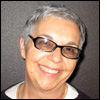 Arts in Review by Carol Davis ___________________ Moxie scores with Devil Dog Six SAN DIEGO—The racing season is upon us again and it’s time to check the daily race sheets, daily doubles, odds on odds, track conditions and of course, the jockeys. I don’t know about you, but a name goes a long way in this household. Both the names of the horses and of course, the jockey are a consideration when picking a winner. Ah yes, the jockeys! And what would you say if I told that there were Jewish Jockeys throughout the history of racing? Would you believe that there have been Jewish Jockey’ racing since the Civil War. Names like Jacob Pinkus, Walter Blum in the ‘50’s, ‘60’s and ‘70’s, Bill Harmatz in the ‘50’s and now David Cohen who lives in Arcadia, Ca. True, but there are also some female Jewish Jockeys out of Canada. Barbara Jo Rubin raced in the ‘60’s and now Jillian Scharfstein is the woman of the hour. According to the Canadian Jewish News, “Scharfstein is possibly the only Jewish Jockey of either sex currently in thoroughbred racing (must be in Canada), admits there is a fair amount of controversy when she decided to become a rider. Further, she admits a resistance when she decided to compete in the most dangerous sport of all”.
That takes me to the to Moxie Theatre’s current production, a World Premiere of
Devil Dog Six, a comedy by Mary Fengar Gail, directed by Esther Emery
and Jennifer Eve Thorn about a girl, a horse, a jockey,
racing and all the goodies, or not, that abide in that world. RIDE, RIDE— From left: JoAnne Glover, Terri Parks, Mark C. Petrich, Lawrence Brown and Tim Parker I remember when my middle daughter HAD to have riding lessons. (She also wanted a horse) She was one of the (you name the number) many young girls who flirt with the idea of a horse being a girl’s best friend. We schlepped her weekly to lessons, only to be shocked when we picked her up to find her grooming, picking whatever out of the horse’s shoes and in general, caring for this animal in ways we wished she would clean her room at home. Devon Tramore (Jo Anne Glover) grew up in this world of horses; training, feeding, grooming, racing etc. That was her life in Louisiana and at the different tracks in which she raced. Her mother Josselin (Teri Park) is a trainer and her father Bernard (Tim Parker), well, he bets on them. In fact, Devon’s whole being, heart and soul, is centered around racing in general and horses in particular. So it wasn’t unusual that when she saw an opportunity to nudge her mother to ride one of the mounts they were training at their horse ranch, that she went at it with all her might even though they thought he wasn’t quite ready. Over the objections of both parents, Terri Park and Mark C. Petrich) Devon gets permission from the horse’s owner to race the horse, only to be thrown off due to what some suspect is a foul. She was not well liked by her fellow jockey’s. She takes an injury to her head, is raced to the hospital where she goes in and out of consciousness. That’s when the fun begins. Time stops when she is in the hospital with this space looking helmet (electric convulsive therapy) hovering above her head and she has out of body experiences or HPS (horse sensory perception) which give her an advantage over the other jockey’s since she knows the animals in a more ‘personal’ way. She talks to them! Gail calls her play a comedy. I like to think of as that and more. It can also fall into the fantasy or whimsical category because most of it is rather dreamlike in fashion, as when Devon feels herself developing horse like qualities, (Flies buzz around her, her hair looks like a mane, she sleeps in the hay as well as talking to them by braying and whinnying.) She also claims to understand them, and she wants to be one! It’ a bit bizarre, to say the least. But it doesn’t stop there. To make the racing part of the play happen, rather than use a soundtrack of a race, the players become the horses in the race. What can I say. Devil Dog Six is a fun piece of theatre that gives glimpse into the racing world, talks to the power and equality of women, and entertains. There have been other plays in which people play animals (Equus by Peter Schaffer and Sylvia by A. R. Gurney) but they stay in character. Six actors play 24 parts without so much as a hesitation while racing on ‘the race track’ (Nick Fouch. It’s like watching an exercise in absolute concentration. Jo Anne Glover, a talented actress across the board, puts in another great performance as the loopy daughter/jockey/love sick gal who loves horses she also is in love with the groom/exercise rider at their ranch, (he’s black and they are in the deep south) and she wants to be a famous female jockey in a time and place when the girls became debutantes not jockey’s. According to the playwright, it’s about becoming the best at what you love no matter the gender, race or competition. Finally, once she ‘feels’, that she is at one with the horses, nothing can stop her from her personal commitment. Over the objections of both parents, she gets a chance at a ‘comeback race’. This race builds to an exciting climax for a lively show that raises the bar for women playwrights, female actors and Moxie Theater, which is dedicated to expanding the idea ‘of what is feminine by using the intimate art of theatre to create more honest and diverse female images for our culture’. We were also asked not to reveal the winner of this final race since you will have an opportunity to bet the race yourself. Under the deft direction of both Emery and Eve Thorn with Devin Bowman who designed the costumes, Jennifer Setlow the pinpoint lighting design, Rachel LeVine the sound and with a solid ensemble which includes Tim Parker, Lawrence Brown and Bill Dunnam, Devil Dog Six is one show to put on your summer calendar. It plays through Sat., June 30th at the Lyceum Theatre downtown. For more information call (619) 544-1000 or www.moxietheatre.com. See you at the theatre
(Continued from above) The long trip, all sixty miles of it, was an adventure. This was well before turnpikes, expressways, throughways or freeways. Sixty miles didn’t take sixty minutes. At a speedy thirty five miles an hour it took two hours not counting wrong turns or ending up behind an Amish horse and buggy traveling at five miles an hour. Occasionally we saw a row of cabins with a tall sign: “Motel.” Bubbe wondered who this “Motel” (as in “Motel the Tailor” in Fiddler on the Roof) might be. As every few miles the same name on a sign was seen again and again, she and my mother concluded that owning as many cabins as he did, Motel – or “Motel-leh” as they called him - must be a very rich Jewish man. Accommodations other than hotels, were a new thing then. Years later my father claimed that he knew all along that it wasn’t a man named “Motel” (rhymes with “shuttle”) – but “motel” (rhymes with “hotel”) – however, I’m not so sure. We had packed a picnic lunch, planning to eat it under a tree, with a grand supper later in the famous Brunswick Hotel. However, there were no trees under which to eat. Lots of trees, but not free for lunch. They were all on private property. People who live in the country, own farms, orchards and grazing land have no need for public picnic areas. So, we pulled up on a dirt shoulder and ate in the car. Having rained the night before the car was surrounded by puddles, which meant we had to stay inside. However, we rolled down the windows for “country air” until some cows wondered over to check us out and a property conscious dog wouldn’t stop barking. As we drove into Lancaster we eagerly pointed out how quiet it was; none of the fuss and noise of the big city. It was, in fact, too quiet. While we celebrated the Sabbath on Saturday, the State of Pennsylvania, especially outside the major cities, and more especially in religious communities like the Old Order Amish, celebrated the Sabbath on Sunday. Everything, absolutely everything, was closed. Disappointed, our small store of shopping money unspent, but our lunch eaten, we turned for home. However, all was not lost, we still caught sight of Amish homes and farms, their sense of order and utility of purpose pervaded everything. Straight lines of corn stood twenty-two feet high, houses with slanted roofs and wide porches were de rigueur as were the dark green window shades that shielded the floor to ceiling windows. Bubbe disapproved of the color scheme; she preferred a lighter brighter décor in window shades. She and my mother also didn’t understand why the Amish grew their flower gardens in the back of the house for the family to enjoy, rather than in the front for the tourist to enjoy. Passing a stream, we saw two little boys in yellow straw hats and bibbed trousers, with a line tied to a stick, fishing. Their bare toes hung down from a tiny wooden foot bridge, swishing in the cool water. My mother was upset, “These people have such big farms, but don’t put shoes on their children.” Bubbe agreed that shoeing a horse before shoeing a child was an unacceptable order of priorities. I envied those little boys. Going barefoot seemed like a great idea to me. My priorities were obviously skewed. The remedy for the Sabbath problem was to go on a Monday which we did several Mondays later. This time (after another picnic in the car) we were greeted by a peopled Lancaster. Buggies were tied up outside shops, the Farmer’s Market was open and our hearts were gladdened. However, Monday was “family wash day” and the laundry was hung in all the front yards (where the flowers should be) instead of in the back yards (where the flowers were). Mother said: “With all that land, they hang the wash in the front – even on the porch and it looks terrible.” Those Amish just couldn’t figure things out. After wandering around the Market, unable to buy anything since the Amish inconveniently had pork for sale; we decided the big moment had come: supper in the Brunswick Hotel. This was definitely not one of Motel-leh’s cabins. It was a stern edifice reeking of “class” and other attributes we suspected were above our personal stock of assets. (A quick Google tells me that the situation has reversed and that I now outclass the hotel). The “Fricasseed Chicken and Dumplings” only stumped Bubbe for a moment until she decided from my mother’s translation from English to Yiddish (it’s not easy translating “fricasseed” into Yiddish) that it was really “Stewed Chicken and Kreplach.” But, she also decided it was probably left over from Shabbos dinner (whether you celebrated it on Friday night or Sunday) and therefore - leftovers. So, that dish for which the hotel was famous was off our list. Also famous was the Shoo-fly-pie. As an eight year old the name of the pie piqued my interest, but made my mother suspicious. Upon inquiry she was told that the Amish women put the pies on the window sill to cool and posted a child to shoo away the flies. That ended my prospects for trying that pie. We settled for peach pie instead which proved scrumptious. (Why Shoo-fly-pie went on a window sill and peach pie didn’t, I never understood.) Told that the peach pie recipe was in a cookbook for sale in the gift shop, my mother and Bubbe hurried over to buy it. However, a recipe that starts with: “Take a peck of freshly picked peaches and…..” quickly loses its allure for the city dweller. Coming out of the hotel properly sated, we overheard a group of Old Order Amish speaking amongst themselves and since we were (Yiddish-English) bi-lingual, the semblance to Yiddish was close enough that we could follow their conversation. The tourist books that listed “Quaint Pennsylvania Dutch Phrases” like “throw mama down the stairs her hat” sounded fine to us. However, since we could understand “them” it also meant “they” could understand “us” which put a crimp on the running critique such as choice of laundry versus flower placement. While I admired the rosy cheeked, bright eyed little Amish girls, Bubbe and mother thought for the adult women a little lipstick couldn’t hurt. Tired and happy we piled back into the car and as my eyes drooped, my head on Bubbe’s lap, I heard her say: “It’s beautiful out here, but I could never live. It’s too dark at night.” Livni's letter to Arab world... (Continued from above) The principle of two homelands for two peoples is not new. And yet, its deeper meaning is not always appreciated. The establishment of Israel provided the answer to the historic national aspirations of the Jewish people, those living in the Holy Land and those outside it, those refugees fleeing the horrors of the Holocaust and those that left or were expelled from Arab and other lands. This must also be the true calling of the future State of Palestine - to be the solution to the national claims of the Palestinian people, those in the West Bank and Gaza and those in the Diaspora, those languishing in refugee camps and those who enjoy equal rights as citizens in other States. The establishment of Palestine must itself constitute the answer to the Palestinian claim of return – it cannot remain as an open wound that keeps the conflict alive. The principle that both States must live in peace and security is equally self-evident. The future State of Palestine must not be a terror State. Neither the parties, nor the region can afford it. For this reason, the international community has insisted that the path to Palestinian statehood goes through acceptance of the Quartet principles, including the renunciation of terror, and the implementation of Roadmap obligations. Any future settlement will need to include agreed arrangements and guarantees to ensure that security is effectively maintained. These are not obstacles to peace, but foundational principles for it. Israelis and Palestinians will also need to reach agreement on a common boundary, that will include additional territorial withdrawal. There are those who believe that if only we could turn back the hands of time to 1967 all would be resolved. But, in 1967, there was no Palestinian State, there was no link between the West Bank and Gaza, and there was no security. An international boundary between Israel and a viable Palestinian State is a new creation that cannot be dictated but needs to be negotiated in accordance with Security Council Resolution 242. I believe that these basic principles express a common interest shared by all those who support Israeli-Palestinian reconciliation. These principles are not pro-Israeli or pro-Palestinian. They are, simply, pro-peace. To advance this process, Israelis and Palestinians committed to the Quartet principles have the responsibility to engage each other, face to face, and together create the conditions for successful negotiations. In this context, Prime Minister Olmert and President Abbas have agreed that, alongside needed measures to improve the security and humanitarian situation, they will engage in frequent and substantive discussions on the nature of the future, viable Palestinian State that will be part of any prospective agreement. These talks could provide both sides with the political horizon they seek and offer a way out of the mistrust and insecurity that have characterized Israeli-Palestinian relations for far too long. While there is no substitute for direct Israeli-Palestinian dialogue, the supporting role of the international community will be essential. All those who support the cause of peace need to maintain an uncompromising stand against the extremists, tackle incitement and intolerance, while strengthening those truly committed to co-existence. Only in this way can we demonstrate that it is dialogue and mutual recognition not violence and rejection which produce results. The role of the Arab world in this context is critical. We have erred in the past by not sufficiently involving constructive regional actors in assisting the process of Israeli-Palestinian peace-making. The landmark Arab peace initiative presents just such an opportunity for positive regional engagement. If used correctly, it can serve not as a dictate that ties the hands of the negotiating parties, but as a vehicle for Arab States to provide support and legitimacy for the agreed compromises that both Israelis and Palestinians will need to make as part of any future agreement negotiated between them. The Arab and Muslim world can also act as a catalyst for Israeli-Palestinian reconciliation by advancing parallel steps towards regional reconciliation and giving all peoples of the Middle East tangible indications of the benefits they will enjoy when the region is at peace. In this way, the principle of normalization can be transformed from a vague reward offered at the end of the conflict into a concrete process that helps bring it about. There are some encouraging signs that we are moving in this direction. The first historic meeting between Israel and representatives of the Arab League, held in Cairo last month, could signal the beginning of a process of working together to support the cause of peace, and creating the climate in which it can take root. We should have no illusions. The enemies of co-existence, headed by the likes of Iran, Hezbollah and Hamas will do all in their power to sabotage any prospect for peace. They are determined to transform conflicts that are political and resolvable into ones that are religious and irreconcilable. If they succeed, they promise a future of violence, hatred and despair for us all. We cannot close our eyes to the dangers they pose and we will not reach peace unless we work together to overcome them. It is not enough for the people of the Middle East to quietly hope that the dark designs of the extremists will not materialize. Yes, there is a peace alternative. It offers a brighter, more secure and more dignified future for us all. It offers an alternative reality for a region built on hope rather than fear. But the people of the Middle East, and their leaders, must have the wisdom and the courage to choose it. News Sleuths... MR. SNOW: I think what the President did early on was make it clear that we're not going to deal with terrorists. Yasser Arafat, as you know, was in power. He had been the most frequent visitor to this White House in the previous administration. And President Clinton I think had expressed considerable exasperation about the lack of returns for it. What the President had done was maintain a sense of moral clarity about who you're going to deal with. But this administration has always been engaged. This is the first administration the have talked about a two-state solution. And we continue to work through it. It is pretty clear, on the other hand, that there are terrorists who, every time there is some inclination of progress, are going to do what they can to try to get in the way of it. As we have said, the Palestinian people are going to have to make choices about whom they support, and we support the emergency government of President Abbas. And, again, for much fuller detail on that, consult the Secretary of State quite soon. Q Do you think that the war in Iraq has helped push the peace process forward in any way? MR. SNOW: Don't know. I mean, what I don't think is -- quite often people say, well, you can't -- you're not focusing on the Middle East because you're focusing on Iraq. These are all related. As the President has pointed out before, whenever pro-democracy movements seem to be making some progress -- Lebanon, for instance -- there are actions that are designed to derail it. This is part of -- this is part of the larger war on terror, and we, in fact, remain fully engaged on all fronts. Q But before the war, the President said that taking out Saddam Hussein would help stabilize the Middle East. Do you think that's turned out to be true? MR. SNOW:
Hard to say. I mean, what you saw, for instance, was very swift change of
behavior on the part of Libya. Certainly we continue to work closely with our
other allies in the region. But it is also clear that al Qaeda is doing whatever
it can to try to destabilize. And it is our commitment not only to fight back
against al Qaeda, but to strengthen the forces of democracy. We continue to
support the Siniora government, which at the beginning of this administration
was not in place. So I think it's very difficult to come up with a sort of glib,
one-line description of what's going on in the region. But it is pretty clear
that a lot of people are putting their lives on the line for the cause of
democracy in Iraq, Lebanon, Afghanistan, and elsewhere. And we support them. Q And on this Alan Johnston situation in Gaza, does the administration, by any chance, have any insight into who is holding -- MR. SNOW: Well, if we have inside information we will not share it. Q Tony, will the President advise Israel to refrain from military action in Gaza? MR. SNOW: The President will be meeting with Prime Minister Olmert tomorrow. We'll give you a readout after they've had their conversation. Q What does he hope to get out of that meeting? MR. SNOW: This was a prescheduled meeting, but obviously it's an important time to be talking about trying to move forward with the Middle East peace process. This shows our continuing engagement of and support for the Israeli government and also those who want to pursue a path toward a two-state solution that's consistent with the Quartet principles. Q Does Hamas' action in Gaza -- Q How do you pursue a two-state solution when you've got three states? MR. SNOW: Well, they'll talk about it. Q Does Hamas' action in Gaza make it easier to move this process forward in the eyes of the U.S.? MR. SNOW: Again, I don't want to characterize. What I would do, for all of these questions, is direct them to the Secretary of State, who will be speaking soon. Q You said, essentially, that the President created a moral line in terms of meeting with Arafat -- dealing with Arafat. But none other than Shimon Peres has said you have to deal directly with your enemies. So does the President believe that we -- that the United States should have any direct contact with people who may be less than morally like Hamas? MR. SNOW: I think what the President is doing right now is showing support for our friends. And there are many people in Gaza who I think today are right now the victims of wholesale abuse of their human rights. And we support their efforts -- the people who want democracy, who want freedom, who want stability, who want the ability to build full lives, those are the folks that we're supporting and continue to support. Q One could argue that they have democracy, that Hamas was elected a little bit over a year ago; they're a democratically elected government, and yet this administration and its allies have sought to undermine them. I wonder how you square the notion of democracy in the Middle East and undermining a government when you don't like who is elected. MR. SNOW: Well, they have actually pursued a constitutional solution right now. I don't think that what you would call -- correct me if I'm wrong, but I don't think you've seen a vigorous exercise in democracy in Gaza in recent days. I think you've seen just the opposite. What this administration has said is that we will not deal with a terrorist organization, but we have also invited those in Hamas to go ahead and abide by the Quartet principles. Q But is the administration for democracy in the Middle East, regardless of who gets elected? Or if it doesn't like the results will it go against -- MR. SNOW: We've been through the debating points on this many times. We are for democracy in the Middle East. We are also against going in, routing out and slaughtering people you disagree with. Q Tony, have things eroded so much there that there is a concern that the President's current efforts will make a difference, realistically? MR. SNOW: You got to keep -- yes, of course the President -- we believe that if you support your friends and also -- keep in mind, the United States, Israel, President Abbas are not the only players. There are also regional players who are keenly interested in what's going on. And they see that there are some attempts from the outside to destabilize the region, and what they want is stability, and they want the assurance that we can, in fact, move forward. The President is working with leaders throughout the region, and will continue to do so. Q So, understanding what you're saying, things are not so far gone that the President can't make a difference? MR. SNOW: Well, look, ultimately, what has to -- this is about creating the ability for the Palestinian people to achieve their destiny as a free people. This is not simply the President waltzing in; the President doesn't have a magic wand. But what we are trying to do is to give strength and support to people who are defending human rights and promoting the cause of democracy.
SECRETARY RICE: Good afternoon. This morning President Bush spoke with Palestinian Authority President Abbas. He told him that the United States supports his legitimate decision to form an emergency government of responsible Palestinians, and he welcomed the appointment of Salam Fayyad as Prime Minister. The President pledged the full support of the United States for the new Palestinian Government. I delivered this same message this morning in a phone call to Prime Minister Fayyad. I congratulated him on his new post, and I told him that the United States would resume full assistance to the Palestinian Government and normal government-to-government contacts. I told the Prime Minister that we want to work with his government and support his efforts to enforce the rule of law and to ensure a better life for the Palestinian people. A fundamental choice confronts the Palestinians, and all people in the Middle East, more clearly now, than ever. It is a choice between violent extremism on the one hand and tolerance and responsibility on the other. Hamas has made its choice. It has sought to attempt to extinguish democratic debate with violence and to impose its extremist agenda on the Palestinian people in Gaza. Now, responsible Palestinians are making their choice and it is the duty of the international community to support those Palestinians who wish to build a better life and a future of peace. I have worked -- I am working with my Quartet colleagues on ways that the international community can deliver support to the new Palestinian Government. In the meantime, the United States is taking some immediate actions of its own. We intend to lift our financial restrictions on the Palestinian Government, which has accepted previous agreements with Israel and rejects the path of violence. This will enable the American people and American financial institutions to resume normal economic and commercial ties with the Palestinian Government. We are also reviewing our democracy and development assistance to help the new government build institutions and infrastructure that will improve life for Palestinians that will provide essential services, better roads, and clean drinking water to people in need. We had previously identified up to $86 million to support President Abbas's efforts to build responsible security forces. Now, in light of the new Palestinian Government, we will be working with Congress to restructure that assistance so that it can be used effectively. Finally, I would like to make one point absolutely clear. Through its actions, Hamas sought to divide the Palestinian nation. We reject that. It is the position of the United States that there is one Palestinian people and there should be one Palestinian state. Therefore to help ease the suffering of all Palestinians, especially those in Gaza, we intend to contribute $40 million to the United Nations Relief and Works Agency. We will not leave one and a half million Palestinians at the mercy of terrorist organizations. In the days and weeks ahead there will be much work to do. I plan to continue working with Prime Minister Olmert and President Abbas to clarify a political horizon for a Palestinian state. We're at a critical juncture for the Israeli and Palestinian peoples, one at which the choices are ever more clear. We must take hold of this moment to make new progress toward the vision that President Bush laid out five years ago this week: two states, Israel and Palestine, living side by side in peace and security. And now I'd be happy to take your questions. Anne. QUESTION: Can Mahmoud Abbas really negotiate on behalf of all of his people if he's effectively only representing half of them? SECRETARY RICE: Well, let's remember that Mahmoud Abbas is the President of all of the Palestinian people through the Palestinian Authority. He is also the head of the PLO. These are the institutions of the Palestinians as a whole. We are focusing today and in the days to come on helping this new government to find its footing and to begin the work, the very difficult work, of making life better for the Palestinian people and that is our focus today. Yeah, Charlie. QUESTION: Madame Secretary, how will you ensure that the money that goes to the Palestinians in Gaza gets to the people and isn't siphoned off by Hamas since you obviously have no one there to supervise that? SECRETARY RICE: Well, we have some experience, of course, working with UN relief agencies and with nongovernmental agencies and we will work through UNRWA in this regard. Obviously, it will be very important and we will do everything that we can to make certain that the monies get to the Palestinian people. But we have a long history of working through agencies of this kind. It's been some time since we had a presence in Gaza in any case. And so we will use many of the same goals -- I would hope that -- as many of the same means. I would certainly hope that the -- that people in Gaza would understand that it is important for the international community to be able to respond to the humanitarian conditions there. Yeah. QUESTION: Madame Secretary, Fatah leaders have been corrupt in the past. By resuming aid, do you think that there's a danger that you're propping up a system and leaders that have been proved to be corrupt and a system that has been proved in the past not to work? SECRETARY RICE: Well, first of all, we have been very strong advocates of political reform in the Palestinian political space, including Fatah reform. And that needs to proceed and I'm certain that it will, but I think if you look at this government and particularly, if you look at its prime minister, you see someone who has a reputation for integrity, who has a reputation for having accountability. I remember when he was finance minister even under the old government when Yasser Arafat was still in power. He was the one who went forward to try and publish the budget on the internet so that people could see transparently what was being spent by the Palestinian Authority. So this is someone who has a reputation for integrity, and I think can be relied on with appropriate controls and appropriate authorities to make certain that funding is used for the good of the Palestinian people. Yes. QUESTION: Madame Secretary, different issue? SECRETARY RICE: I'll tell you what. I'll come back because I think people probably have -- still on this issue. Elise. QUESTION: Madame Secretary, how much of this is just a return to the situation in -- before January 2005 when Hamas was elected? That situation didn't seem to be helping President Abbas and many in the Arab world say you can support him and give him as much money as you like, but without meaningful progress on the peace process, it's not going to be enough to shore him up and set up the kind of Palestinian Authority you're looking for. SECRETARY RICE: Well, I fully agree that a political horizon for the Palestinian people is critical. It is -- I've talked often about the fact that it is important to improve conditions on the ground. It's important to work on issues of movement and access. It's important for funding to be available to responsible Palestinian leaders. But the Palestinian people also need to know that there is a viable state that is possible and that the -- their state can come into being. The Israelis need to know that when that state comes into being, it will be a means of helping to secure the region, including Israel, not a means for the furtherance of terror. So that has not changed, Elise; that is certainly the circumstance and we will be trying to continue to press that case forward. I think what you have seen here is a clarification now, that there are those who completely reject that vision and there are those who are committed to that vision. And we intend to support those who are committed to that vision including with an active political track. Yes. QUESTION: Madame Secretary, what are your concerns with security in the area and how soon would security assistance be provided to the -- SECRETARY RICE: Well, we're, of course, very concerned about security. As you know, we've got a major effort at security reform. General Dayton is there and he will be -- we'll be discussing with him how to move forward. But I can tell you that both in his speech and in his conversation with me, Prime Minister Fayyad said that his first and foremost concern was security for the Palestinian people, that he was concerned that law and order, the rule of law be reestablished, that people feel that they can walk the streets safely. And I think he will be a good partner in security reform. Yeah, Jim. QUESTION: Madame Secretary, I am obligated by the dictates of the news cycle and my assignment desk to ask you about a different subject. SECRETARY RICE: All right. Let me get -- QUESTION: Will you come back to me? SECRETARY RICE: Yeah, I'll come back. Yeah, I will, I just want to -- we'll finish the Palestinian issue and then -- Janine. QUESTION: Madame Secretary, can you explain what the U.S. plans here? Is it to work with Abbas to solidify his power in the West Bank or are you going to be encouraging him to try and reassert control of Gaza? SECRETARY RICE: I think that we have in President Abbas and in the Prime Minister Palestinian leaders who will take a responsible course. We're going to support the course that they develop and that they outline. Now, first and foremost, they needed to form a government. They need resources for that government. They need a way to deal with the unfortunate circumstances that were left by the fact that the international community could not deal with the last government. Those are the issues that we're going to deal with in this period of time. We will have many discussions with President Abbas about how he intends to move forward and what he needs to do. But I just want to underscore there is one -- just as there's one Palestinian people, we are not going to countenance that somehow this is a -- that Palestinians are divisible. And so we are going to support President Abbas and what he wants to do. We're going to support Prime Minister Fayyad, but we're not going to abandon the Palestinians who are living in Gaza. But this is a fast-moving situation, Janine, and we're going to be in very close contact with President Abbas and with Prime Minister Fayyad and also with international partners. Helene, you have the last question on this one. QUESTION: Thanks. Do we have a short window of time now? Doesn't the Palestinian constitution say basically that this government is legitimate for the next 30 days and then there's another 30-day extension and after that it has to go to elections? Are you trying to do any certain amount of things in the next two months or do you feel that you have more time? SECRETARY RICE: Helene, I think we will leave to the Palestinians issues of how they work through their own constitutional issues. Our view, very strongly, is that what President Abbas has done is legitimate and it is responsible and we're going to support that action.
|


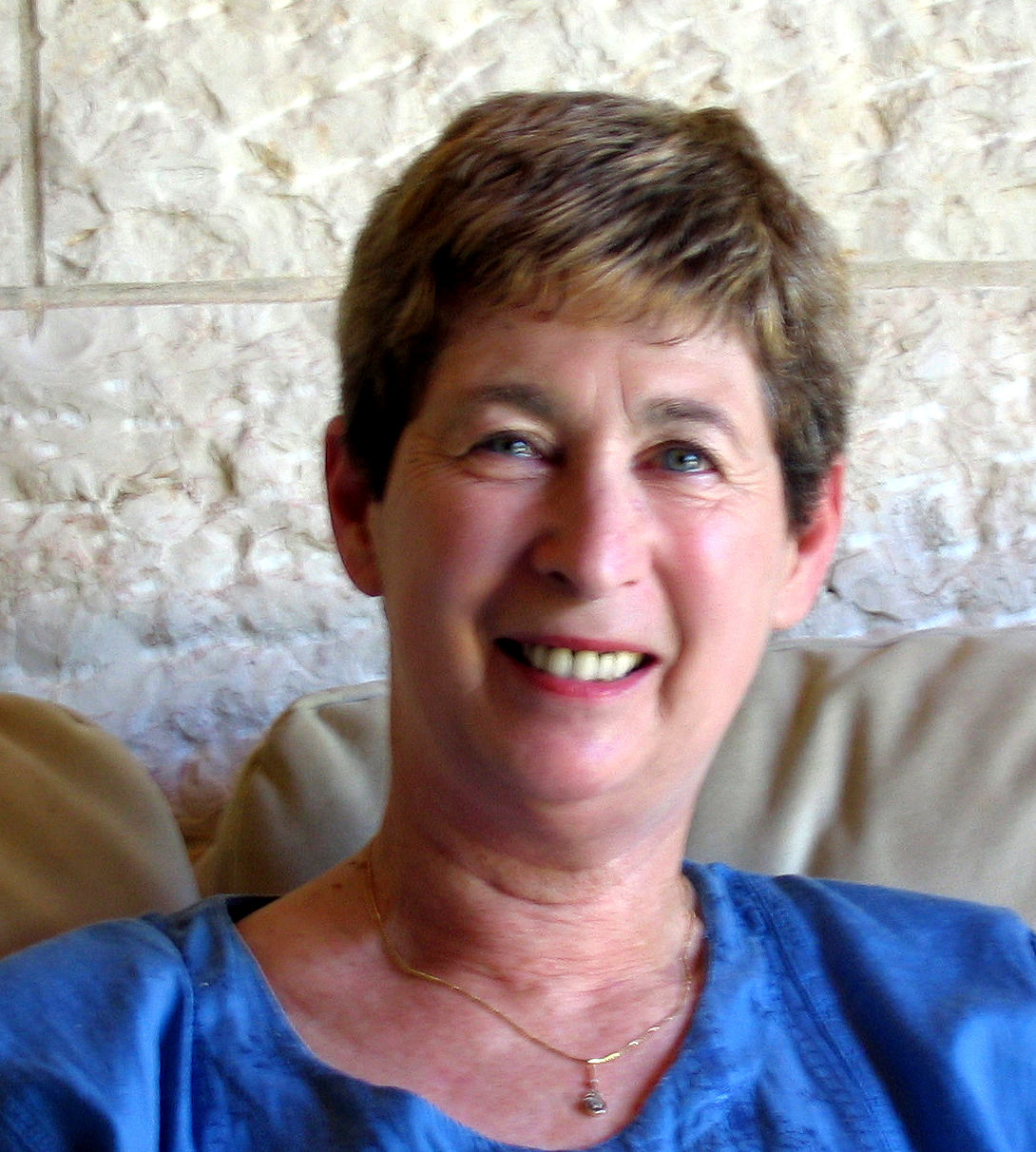

 Your specialist in
Your specialist in
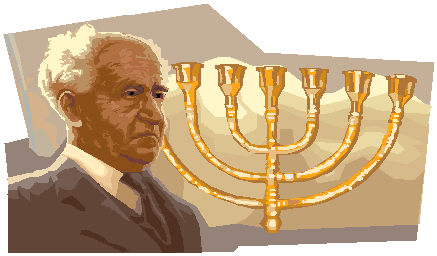 Jews
in the News
Jews
in the News
 News Sleuths:
News Sleuths: 

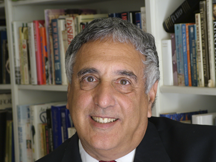 The
Jewish
Citizen
The
Jewish
Citizen
 People
of the Books
People
of the Books
